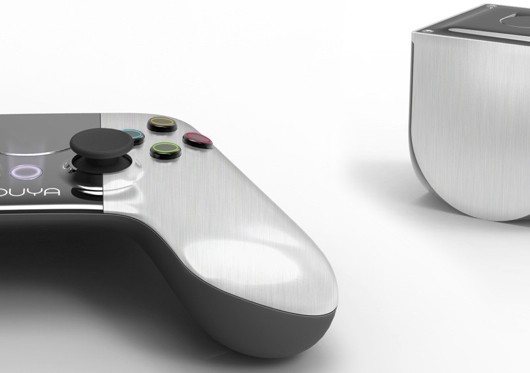More and more new games are targeted to mobile devices such as smartphones and tablets running Android and iOS, and less games are developed for standard gaming console. To work around this issue, OUYA is working on a gaming console based on Android ICS called .. well… OUYA, and posted the project on Kickstarter to complete development and start manufacturing. Here are OUYA Specifications: Nvidia Tegra3 quad-core cortex A9 processor 1 GB RAM 8 GB of internal flash storage HDMI port (up to 1080p HD) WiFi 802.11 b/g/n Bluetooth LE 4.0 USB 2.0 port Wireless controller with standard controls (two analog sticks, d-pad, eight action buttons, a system button), a touchpad Android 4.0 Although you may just think it will just run existing Android games, the company expects the device to bring higher end games such as the ones available on console. Each box will be a development kit, and developers […]
Qualcomm Announced 8 New Snapdragon S4 Processors
During an investor conference, Qualcomm announced eight new Snapdragon S4 mobile processors: MSM8660A, MSM8260A, MSM8630, MSM8230, MSM8627, MSM8227, APQ8060A and APQ8030. All are using Qualcomm’s Krait CPU architecture. Here’s an excerpt of the press release: NEW YORK – November 16, 2011 – Qualcomm Incorporated announced today the expansion of its Snapdragon S4 class of next-generation mobile processors… The addition of new Snapdragon S4 processors, which are aimed at lowering design, engineering and inventory costs while bringing leading-edge 3G and 4G Internet connection speeds, will allow OEMs to introduce S4-based devices with next-generation mobile architecture throughout their respective device roadmaps-from basic smartphones to high-end smartphones and tablets. The enhanced S4 processors are also optimized for use with a suite of software solutions available from Qualcomm that help enable OEMs to deliver industry-leading feature sets for multimedia, connectivity, camera, display, security, power management, browsing and natural user interface design. The Krait CPU […]
Android C/C++ development with Android Native SDK
HyperDevBox is a Japanese based software development company, developing games for Android. They are presenting their new Android game called “Spectral Souls”, the first tactical RPG game for Android. The interesting part is that this Android gamewas not developped with Java, but only using C/C++ programming with Android Native SDK (NDK) (Currently revision 5). Using the NDK means you’ll have to adapt your software to several hardware platform contrary to java development. They now only support Qualcomm and PowerVR GPU for now, and they are working on supporting NVidia Tegra platform and other upcoming GPU. The advantage of native code is a potential performance improvement and code re-use if you have already applications developed in C/C++, the inconvenience is that more work is need to support different hardware. Currently the NDK is only available for ARM platforms (ARMv5TE andARMv7-A), future releases will support x86 instructions. The video below is an […]
Qualcomm Augmented Reality Challenge Winner: Paparazzi
Qualcomm announced the winner of their augmented reality challenge developed with Qualcomm Augmented Reality Software Development Kit (QCAR SDK): The top prize of $125,000 was awarded to a team of two developers from Lithuania, Paulius Liekis and Arminas Didžiokas for Paparazzi, an interactive augmented reality game where the player becomes a virtual paparazzo and sneaks pictures of a vain celebrity before he gets agitated and attacks the photographer. The second (50,000 USD) and third (25,000 USD) prizes were also awarded to augmented reality games respectively Inch High Stunt Guy by Defiant Development Pty Ltd. (Australia), a game where the player arranges various obstacles to enable a stuntman to successfully jump his motorcycle through a hoop and Danger Copter by Alex Beachum, Jonghwa Kim, Jason Mathias, Kedar Reddy and Evan Sforza (USA), a gaming adventure where the player becomes a helicopter pilot who maneuvers a water-spouting chopper to extinguish fires and […]






